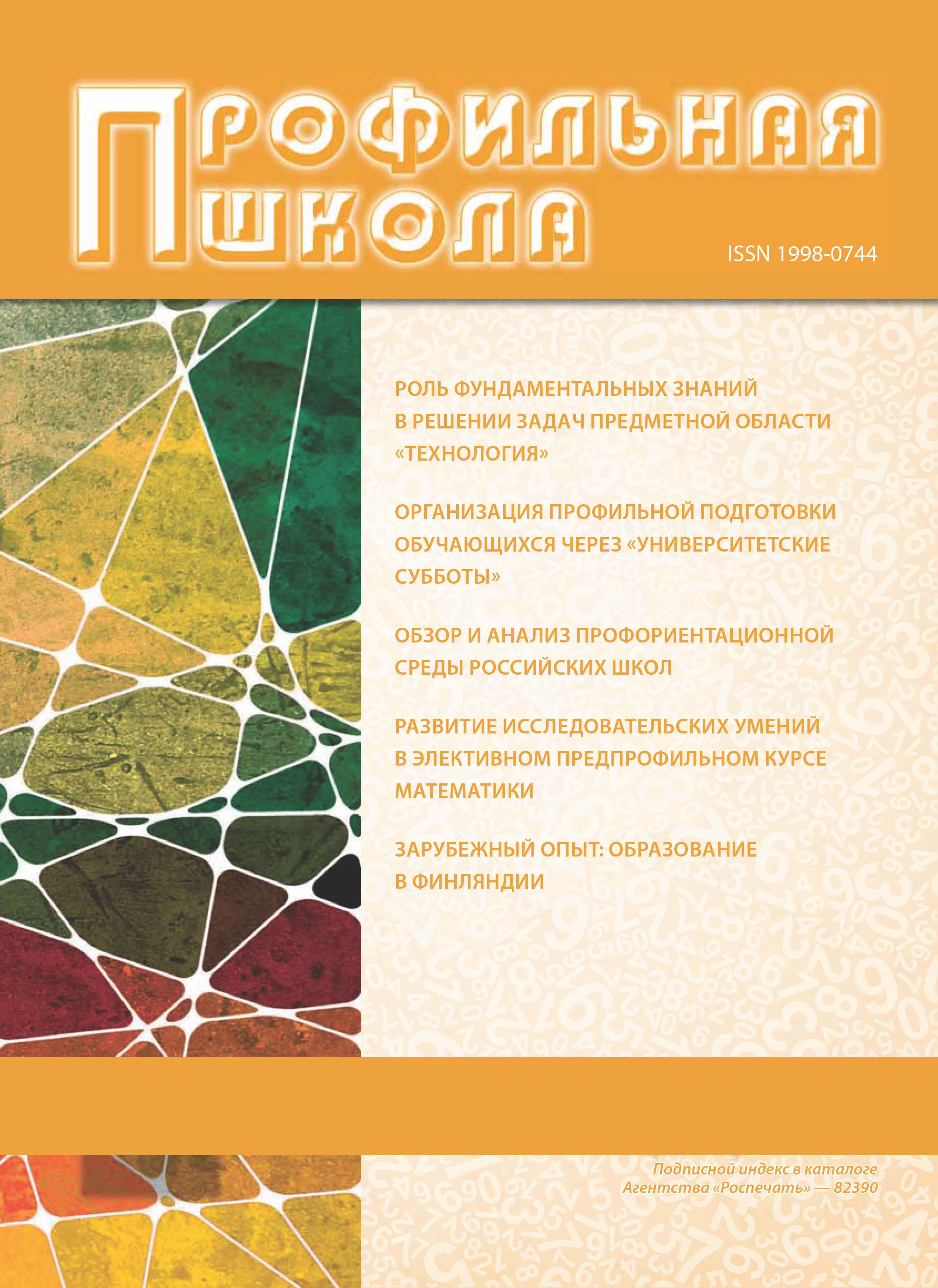Moskva, Moscow, Russian Federation
In the Federal State Educational Standard of Secondary General Education, the «Portrait of a school graduate» presents such a personal characteristic of a student as «motivated for creativity and innovative activity». In the Federal State Educational Standard of Secondary General Education in Computer Science, «the ability to organize personal information space using various means of digital technologies» is named as mandatory personality qualities of students. At the same time, the target orientation of the formation of a personal information space is not specified. There are didactic grounds to consider it expedient to orient students to the formation of a specific personal information space focused on a specific type of activity, in particular, innovation. Nowadays, during the difficult historical development of Russia in the conditions of increasing sanctions pressure of unfriendly states and the need for Russian citizens to master «new competencies» for effective participation in import substitution processes in all types of production activities, in order to ensure technological sovereignty, it is necessary to put the mastery of citizens, including schoolchildren, flexible skills of innovation orientation in the process of innovative universal education. It is advisable to ensure that high school students develop psychological and functional readiness to participate in import substitution processes in their future professional activities as a manifestation of active patriotism using the skills of innovation acquired in general education and, in particular, in a specialized school. It would be right for teachers to focus on the formation of the personality of a high school student-innovator using the technologies of informatization of education.
personal information space, motivated for innovative activity, active patriotism, personality of a high school student-innovator, innovative competence, innovative product, informatization of innovative activity, computer modeling
1. Bychkov A.V. Informatika vo vneklassnoy i vneshkol'noy rabote // Fizika v shkole. - 1984. - № 6. - S. 68-69. EDN: https://elibrary.ru/ZUGVNJ
2. Bychkov A.V. Innovacionnaya kul'tura // Profil'naya shkola. - 2005. - № 6. - S. 33-38. EDN: https://elibrary.ru/OHGIJZ
3. Bychkov A.V. Sozidatel'naya kul'tura uchaschihsya: kakoy ey byt' // Pedagogika. - 2007. - № 3. - S. 22-28.
4. Bychkov A.V. Innovacionnoe soderzhanie obrazovatel'nogo standarta vtorogo pokoleniya (10-11klassy): novaya obrazovatel'naya real'nost'// Standarty i monitoring v obrazovanii. 2013. № 4. S.58-60 DOI: https://doi.org/10.12737/963; EDN: https://elibrary.ru/SEQJYX
5. Bychkov A.V. Metod proektov v sovremennoy shkole. - 2-e izd., dop.- M.: ABV-IZDAT, 2018. - 100 s. EDN: https://elibrary.ru/SCRZUU
6. Zverev V.S. Tolkovyy slovar' «Innovacionnaya deyatel'nost'». Terminy innovacionnogo menedzhmenta i smezhnyh oblastey (ot A do Ya) / V.S. Zverev, G.A. Untura, V.I. Fedoseev; otv. red. V.I. Suslov; Rossiyskaya akad. Nauk, Sibirskoe otd-nie, In-t ekonomiki i org. prom. pr-va. - 2-e izd. - Novosibirsk: IEOPP SO RAN, 2008. - 269 s.
7. Innovator i novator: opredelenie i razlichiya. URL: http://www. viafuture.ru/sozd (data obrascheniya: 17.10.2022).
8. Postanovlenie Pravitel'stva Rossiyskoy Federacii ot 15 aprelya 2014 g. № 328 «Ob utverzhdenii gosudarstvennoy programmy Rossiyskoy Federacii «Razvitie promyshlennosti i povyshenie ee konkurentosposobnosti (s izmeneniyami na 2 iyunya 2022 g.).
9. Upravlenie organizaciey: uchebnik dlya studentov vuzov, obuchayuschihsya po special'nosti «Menedzhment organizacii»/ [G.L. Azoev i dr.]; pod red. A.G. Porshneva, Z.P. Rumyancevoy, N.A. Solomatina; Gos. un-t upravleniya. - 4-e izd., pererab. i dop. - M.: INFRA-M, 2009. - 734 s.






